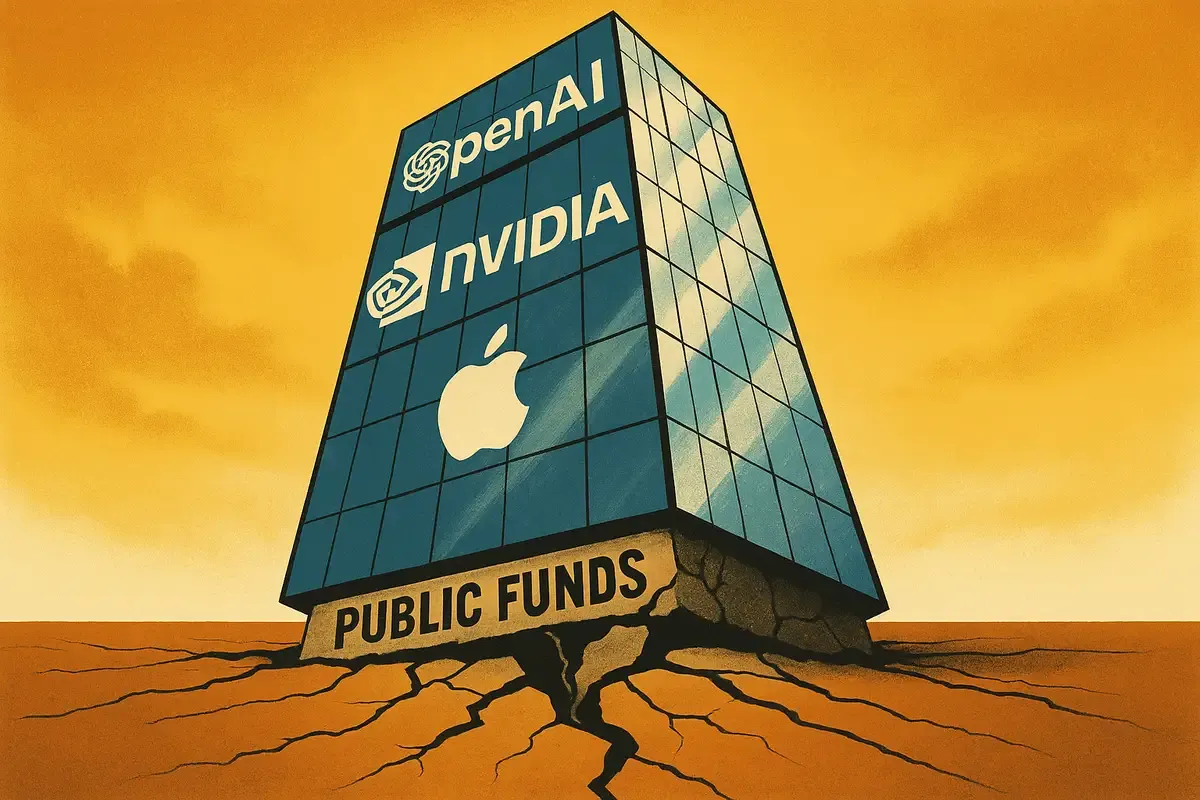Good Morning from San Francisco,
OpenAI wants taxpayers to guarantee its trillion dollar dreams. Sarah Friar floated federal backstops Wednesday, calling AI a "national strategic asset." The CFO admits they could profit without the expansion. They want subsidies for growth, not survival.
The circular financing already looks shaky. Nvidia guarantees loans for data centers buying Nvidia chips. AMD trades deals for equity. Everyone props up everyone else's valuation.
Meanwhile, Apple writes Google billion dollar checks annually to rent intelligence. Eight times the complexity of their current system, all to make Siri less embarrassing by 2026. They tested OpenAI and Anthropic first. Chose containment over capability.
Stay curious,
Marcus Schuler
OpenAI floats federal backstops for trillion-dollar buildout

OpenAI CFO Sarah Friar suggested Wednesday the government could "backstop the guarantee" for AI infrastructure financing, positioning artificial intelligence as a "national strategic asset" requiring federal support against China.
The trial balloon floated at WSJ's Tech Live conference reveals OpenAI's endgame for bridging a staggering gap: $13 billion in annual revenue versus $1.4 trillion in infrastructure commitments.
The financing web already strains credibility. Nvidia discusses guaranteeing OpenAI's data center loans while selling it chips those loans purchase. AMD's deal includes OpenAI warrants for 10% equity. Oracle, Microsoft, and Amazon have committed $600 billion in compute contracts. Each party props up the others' valuations in what analysts call "unhealthy" circular arrangements.
The political groundwork preceded the ask. Greg Brockman poured millions into a $100 million anti-regulation super PAC. OpenAI executives attended White House dinners praising the administration's infrastructure "optimism." The January Stargate announcement—$500 billion for U.S. AI infrastructure—normalized trillion-scale ambitions.
The crystallizing detail: Friar admitted OpenAI could achieve profitability "quickly" without aggressive investment. Translation: taxpayers would subsidize expansion, not survival.
Why this matters:
• Federal AI guarantees would dwarf bank bailouts, normalizing trillion-scale corporate risk-sharing
• Circular tech financing creates systemic risk where "too big to fail" becomes self-fulfilling
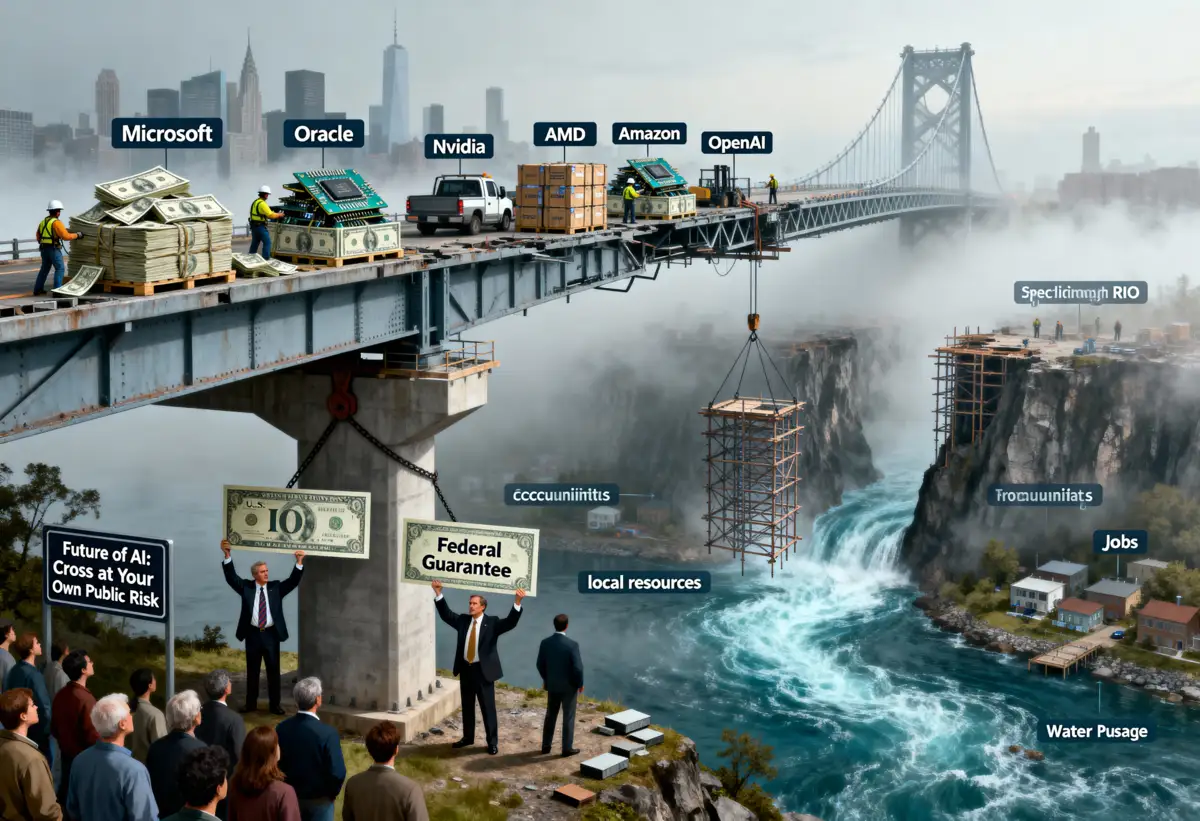
AI Image of the Day

Prompt:
a model wearing an elegant white dress with shoulder-length sleeves, featuring a simple yet luxurious necklace adorned with small diamonds and yellow sapphires in the shape of a cross pendant around her neck. she has her hair tied back, showcasing minimal makeup to highlight her blue eyes, standing against a plain background for a clean look. the focus is on the intricate details of both the jewelry pieces and the attire, capturing the soft studio lighting that accentuates their features.
Apple pays Google $1B yearly for AI catch-up
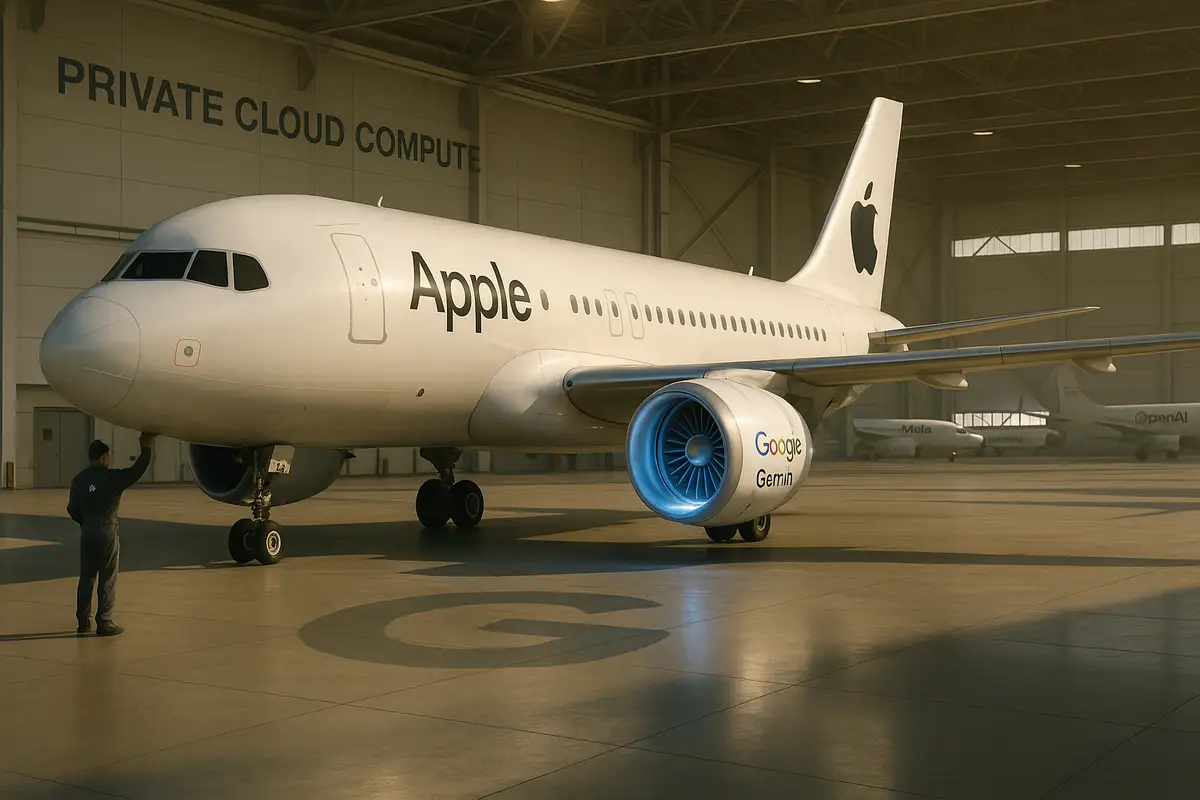
Apple will pay Google $1 billion annually for a 1.2 trillion parameter Gemini model to rebuild Siri by spring 2026. That's not a partnership. It's an AI tax.
The math bites: Apple's current 150 billion parameters jump to Google's 1.2 trillion. Eight times the complexity, running on Apple's servers to preserve privacy theater while Google's brain does the thinking. Apple tested OpenAI and Anthropic before choosing containment over capability.
From Cupertino's view, it buys time while they build a trillion-parameter replacement "as early as next year." From Mountain View, it's recurring revenue plus strategic leverage. Every month of dependency makes switching harder. Apple's bleeding AI talent—the models team head just left. Mike Rockwell now runs Siri after Cook lost confidence in Google-hire Giannandrea.
That's the bind. Build internally while researchers flee, or rent forever.
Why this matters:
• Dependency compounds faster than development. Once you outsource intelligence, unwinding gets exponentially harder.
• Parameter parity isn't capability parity. Apple needs frontier culture, not just bigger models.
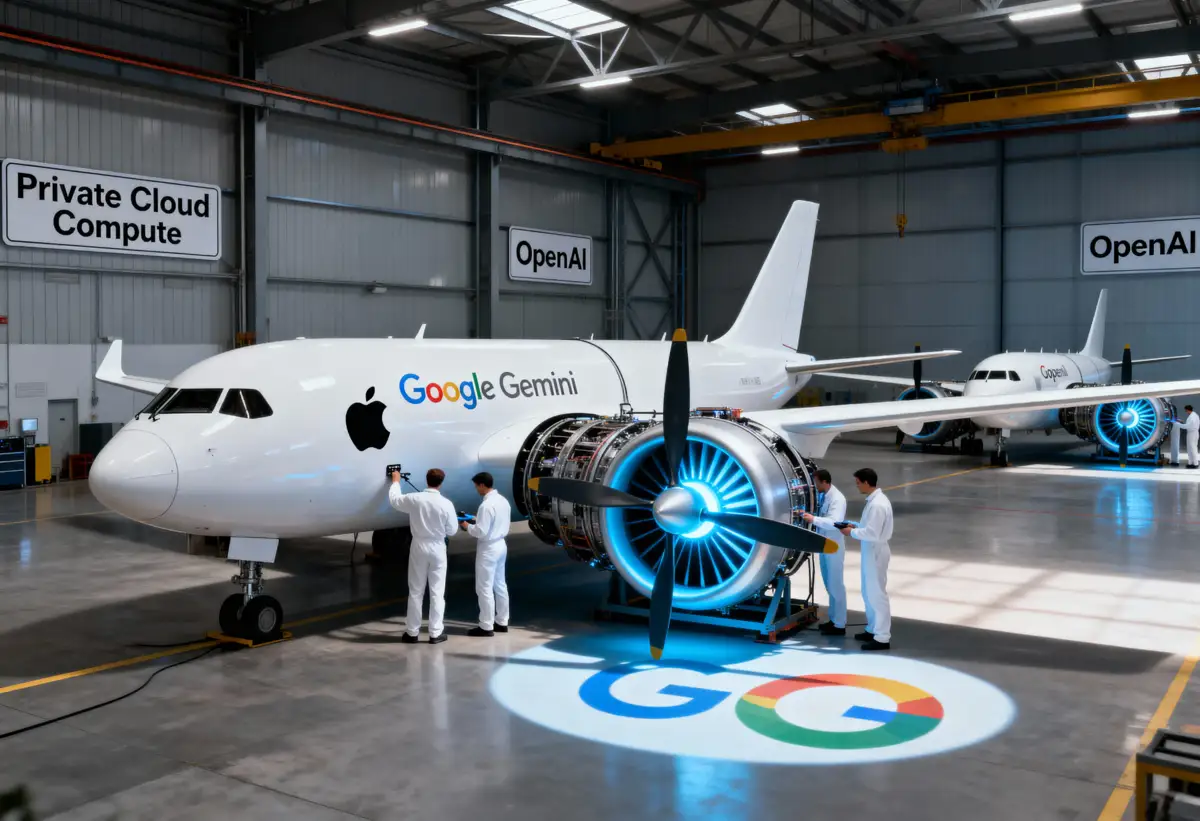
🧰 AI Toolbox
How to Convert, Edit and Manage PDF Files Online
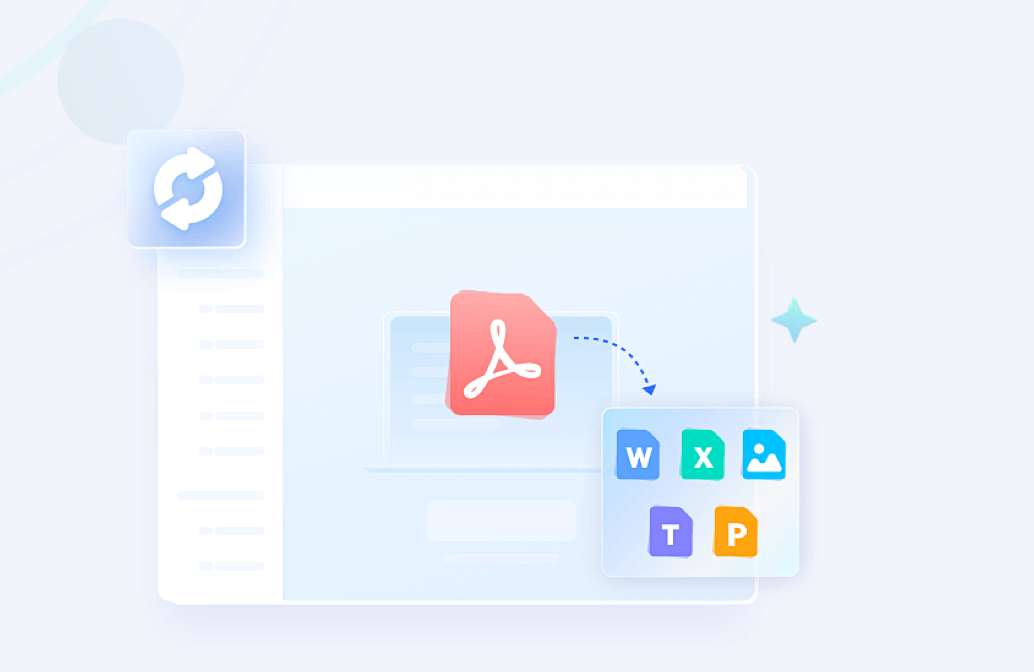
BestPDF provides a complete suite of online PDF tools that work directly in your browser. Convert PDFs to Word, Excel, or PowerPoint, edit text and images, merge documents, and even translate PDFs while preserving formatting, all without installing software.
Tutorial:
- Go to the BestPDF website
- Click on your desired tool (Convert, Edit, Merge, etc.)
- Upload or drag your PDF file into the browser
- The tool processes your document instantly
- Make edits or select conversion format options
- Download your processed file with formatting intact
- Access all tools from any device without installation
Better prompting...
Today: Vocabulary Lesson
Create a daily vocabulary lesson with 10 practical words in [target language] for [beginner/intermediate/advanced] learners. Focus on words people actually use in everyday conversation.
Theme: [specific theme, like "ordering at a restaurant" or "describing feelings"]
For each word, include:
- The word in [target language]
- Clear pronunciation guide (not just phonetic symbols)
- Direct English translation
- One natural example sentence showing real usage
- Any cultural context or common mistakes to avoid
Choose words that connect to each other. For example, if teaching restaurant vocabulary, include words that flow naturally in a conversation about dining out.
Keep pronunciation tips practical. Instead of complex phonetic notation, use comparisons to English sounds or simple explanations.
AI & Tech News
AI Investment Boom Fuels U.S. Infrastructure Development Despite Bubble Concerns
Technology analyst Ben Thompson argues that the current AI boom is driving significant coordinated innovation across the United States, particularly through the construction of semiconductor fabrication facilities and energy infrastructure. According to Thompson's analysis, these substantial infrastructure investments could retain lasting economic value even if the AI investment bubble eventually bursts, distinguishing this boom from previous technology bubbles that left fewer tangible assets.
Google to Build AI Data Center on Remote Australian Island
Google plans to construct an artificial intelligence data center on Christmas Island, a remote Australian territory in the Indian Ocean, according to sources and documents. The development follows Google's cloud services agreement with Australia's Department of Defence signed earlier in 2025, as the strategically located island becomes increasingly prominent in regional military planning scenarios.
US Job Cuts Hit 20-Year High in October as AI Transformation Accelerates
US companies announced 153,074 job cuts in October 2025, marking the highest October total in over 20 years and representing a threefold increase compared to October 2024. The surge in layoffs is being driven by artificial intelligence's rapid transformation of industries and companies' increasing focus on cost-cutting measures.
Sony Launches Fair Human-Centric Image Benchmark for AI Vision Testing
Sony has introduced the Fair Human-Centric Image Benchmark dataset, designed to evaluate the fairness of computer vision models and address widespread bias issues in AI systems. The company emphasizes that all images in the test dataset were sourced with proper consent and compiled through ethical practices.
License Plate Surveillance Company Under Political Fire
License plate surveillance company Flock Safety, which operates the nation's largest network of automated license plate readers, is facing mounting bipartisan pressure from lawmakers and local organizers over concerns about its data handling and cybersecurity practices. The widespread criticism crosses traditional political divides as communities raise questions about the error-prone camera systems and the company's management of sensitive surveillance data.
NVIDIA CEO Warns China Could Win AI Race Despite U.S. Chip Restrictions
NVIDIA CEO Jensen Huang has warned that China is positioned to win the global artificial intelligence race, despite ongoing U.S. restrictions on high-end AI chip sales to the country. Huang criticized what he termed Western "cynicism" as a hindrance to progress, while pointing to China's efforts to loosen regulations and reduce energy costs for data centers to accelerate AI development.
Sequoia Capital Leadership Shifts Strategy Under New Co-Leaders
Sequoia Capital's new co-leaders Pat Grady and Alfred Lin are planning to significantly deepen the venture capital firm's focus on artificial intelligence investments following the exit of Roelof Botha. The leadership change also signals the firm's intention to reframe its public image as less politically partisan as it navigates the competitive AI investment landscape.
TuSimple Transferred Autonomous Driving Technology to China Despite U.S. Security Agreement
According to sources, public records, and documents reviewed by Bloomberg, autonomous vehicle company TuSimple transferred critical self-driving technology intellectual property to Chinese business partners despite having reached a 2022 agreement with the Committee on Foreign Investment in the United States (CFIUS) intended to protect such sensitive technology. The case highlights the challenges U.S. officials face in preventing the transfer of strategically important technology to foreign entities, even after implementing what they believed were adequate protective measures.
Chinese Robotaxi Stocks Tumble in Hong Kong Trading Debuts
Chinese autonomous vehicle companies Pony.ai and WeRide experienced rocky Hong Kong stock market debuts, with shares falling as much as 15% during their first day of trading. The dual listings raised significant capital, with Pony.ai securing approximately $863 million in its secondary offering while WeRide raised around $309 million, highlighting continued investor interest in the robotaxi sector despite the initial trading volatility.
Shein Projects $2 Billion Profit Despite Trade Challenges
Chinese fast-fashion retailer Shein told investors in August that it expects to achieve $2 billion in net income for 2025, demonstrating confidence in its business model despite ongoing US tariff pressures. The company also projects mid-teen percentage growth in full-year sales, indicating robust expansion plans as it navigates international trade challenges.
🚀 AI Profiles: The Companies Defining Tomorrow
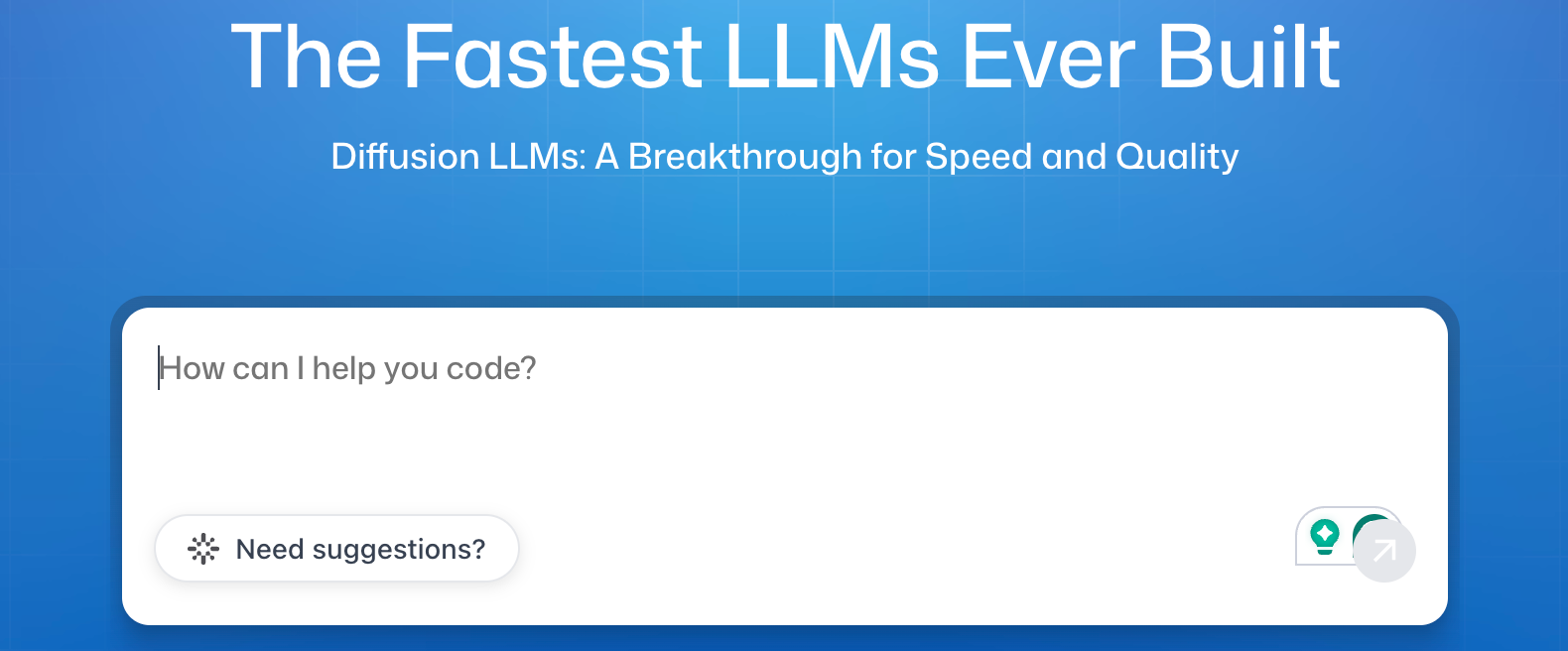
Three professors ditched academia to make language models stop dragging their feet. Their bet: diffusion models, the tech behind image generation, could make text and code appear instantly instead of word by word.
• Founders: Stanford's Stefano Ermon teamed with UCLA's Aditya Grover and Cornell's Volodymyr Kuleshov in Palo Alto. They spun out academic research on parallel text generation that challenges how every major LLM works today.
• Product: Mercury models generate text in parallel, not sequentially. Claims 5.10x speed boost over GPT.4o Mini and Claude Haiku at similar quality. Available through AWS Bedrock, SageMaker, and standard APIs. The pitch is simple: sub.second responses for code completion and voice agents without quality trade.offs.
• Competition: Fighting OpenAI, Anthropic, and Google on one side, GitHub Copilot and Cursor on the other. While rivals optimize sequential generation on custom chips, Inception rewrote the physics. Early wins include Microsoft's NLWeb partnership and developer tool integrations.
• Financing: Just raised $50M led by Menlo Ventures. NVIDIA, Microsoft, Snowflake, and Databricks joined. Angels include Andrew Ng and Andrej Karpathy. Valuation undisclosed but distribution deals suggest serious enterprise traction.
• Future: ⭐⭐⭐⭐ The science checks out and speed demos hit different. If diffusion becomes the standard for real.time AI, Inception owns the patents. Risk is that fast autoregressive models on custom silicon might catch up, but parallel beats sequential when milliseconds matter. 🚀



